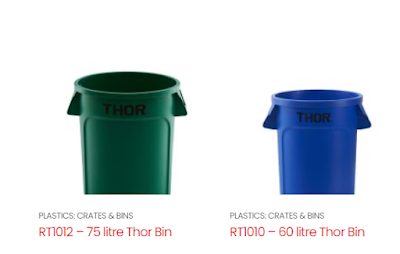The Ultimate Guide to Choosing the Right Industrial Truck for Your Business
The importance of choosing the right industrial truck
cannot be overstated. These workhorses play a pivotal role in material
handling, contributing significantly to the efficiency and productivity of a
business. From forklifts to pallet jacks and tow tractors, each type of
industrial truck is designed for specific tasks. In this comprehensive guide,
we break down different types of industrial trucks from industrialtrucks.com.au,
explore their functionalities, and provide insights on how to match them to
your specific business needs.
Understanding the Types of
Industrial Trucks
1. Forklifts:
Forklifts are the backbone of material handling in
warehouses and manufacturing facilities. They come in various configurations,
including counterbalance, reach trucks, and order pickers. Counterbalance
forklifts are the most common, featuring a weight at the rear to counterbalance
the load at the front. Reach trucks are designed for narrow aisles, while order
pickers are ideal for picking items from elevated racks.
·
Ideal for: Heavy lifting, stacking,
loading and unloading pallets.
·
Considerations: Fuel type (electric,
gas, diesel), indoor or outdoor use, tire type (pneumatic or cushion), and lift
height.
2. Pallet
Jacks:
Pallet jacks, also known as pallet trucks, are manual
or electric devices used for moving palletized loads. They are particularly
useful for short-distance transportation within a warehouse.
·
Ideal for: Quick and efficient movement
of palletized goods over short distances.
·
Considerations: Manual vs. electric,
load capacity, fork length, and compatibility with pallet sizes.
3. Tow
Tractors:
Tow tractors, or tugger carts, are designed to tow
multiple trailers or carts at once. They are commonly used in industries with a
high volume of internal material movement, such as automotive and
manufacturing.
·
Ideal for: Towing multiple trailers,
transporting goods in a line.
·
Considerations: Towing capacity,
speed, and compatibility with various trailer types.
4. Order
Pickers:
Order pickers are specialized forklifts designed for
picking items from high shelves. They often feature an elevating platform to
allow the operator to reach higher storage levels.
·
Ideal for: Order picking in warehouses
with high storage racks.
·
Considerations: Lift height, load
capacity, and maneuverability in narrow aisles.
5. Stackers:
Stackers, also known as stacker trucks, are used for
lifting and stacking pallets. They are a cost-effective alternative to forklifts
for businesses with lighter material handling needs.
·
Ideal for: Stacking pallets in
warehouses and storage facilities.
·
Considerations: Lift height, load
capacity, and power source.
Matching Trucks to Specific
Business Needs
1. Assessing Load Capacity:The
first step in choosing the right industrial truck is determining the maximum
load capacity required for your operations. Consider both the weight of the
loads and any potential future growth in the volume of materials handled.
2. Analyzing Operating
Environment:Different industrial trucks are designed for specific
environments. For instance, electric forklifts are suitable for indoor use due
to zero emissions, while diesel-powered forklifts are ideal for outdoor
applications. Consider the flooring type, space constraints, and whether the
truck will be used indoors or outdoors.
3. Maneuverability and
Space Constraints:Assess the layout of your facility and the available
space for material handling. If you have narrow aisles or confined spaces, reach
trucks or narrow-aisle forklifts may be the right choice. Conversely, larger
spaces may accommodate traditional counterbalance forklifts.
4. Consider Maintenance
and Operating Costs:Factor in the long-term costs
associated with maintenance, fuel, and operation. Electric trucks tend to have
lower operating costs and reduced maintenance requirements compared to their
gas or diesel counterparts.
5. Employee Training and
Ergonomics:The ease of use and ergonomic design of the
industrial truck are critical considerations. Ensure that your operators are
adequately trained for the specific type of truck they will be using, and
choose equipment that minimizes operator fatigue and enhances productivity.
Conclusion
Choosing the right industrial truck for your business involves a careful analysis of
your unique operational needs. Regular maintenance and proper operator training
further contribute to the longevity and optimal performance of your chosen
industrial truck. As industries continue to evolve, selecting the right
material handling equipment will remain a cornerstone of successful and
streamlined operations.



Comments
Post a Comment